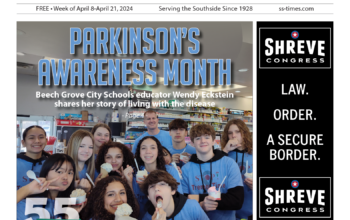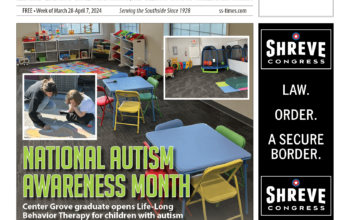By Bradley Lane
“Cyrano de Bergerac” is a play that was written in 1897 by French playwright Edmond Rostand, and while classical French plays aren’t really my thing, its influence has been felt throughout all of cinema’s history. The most enduring element of this play is the concept of one person writing secretly as another person for the author of the letters to secretly express their true feelings about a shared person of interest. From its first adaptation to film in 1925 to now, basically anytime films were being made, this trope has been employed and reinterpreted again and again to fit filmmakers’ vision of the story.
Netflix actually distributed one teen movie using this trope already in the form of 2016’s Sierra Burgess is a Loser, however Alice Wu’s The Half of It is a much more nuanced take of the trope. It follows the shy, quiet and insanely well-read high school senior Ellie as she is asked by one of her classmates, Paul, to write a love letter for their shared crush, Aster, under his name. As Paul and Aster’s relationship flourishes after being fostered by Ellie, Paul and Ellie also grow closer, all the while Ellie is trying to keep her feelings for Aster secret from Paul. Through the framework of these relationships Wu explores themes of identity, existentialism and love in a way that freshens up a tired genre.
Where Wu’s teenage drama distinguishes itself from others of the genre, is in her employment of a wide range of literary, cinematic and musical influences to enhance her storytelling. The words of great thinkers such as Albert Camus and Jean-Paul Sartre liter the voice-over narration, and cinematic greats such as Wim Winders and Charlie Chaplin are referenced explicitly. Allowing stories about youth to be told with such heady ideas not only makes it more interesting for adults, but also demonstrates a level of respect for the teenagers and young people that they will most certainly find rewarding.
However, while I appreciate these works being referenced, their inclusion can sometimes feel like a crutch. If you were to take out these references, I’m not sure the movie would continue to be so interesting. Which is evidenced by its trite climax and confused ending.
Despite fumbling the third act, Wu’s coming-of-age story is head and shoulders above its contemporaries on Netflix. It’s a perfect movie for when the whole family is stuck in the house together fighting over what to watch. It balances emotional complexity with lighter comedic elements to achieve a tone all its own. -3.5/5 stars

